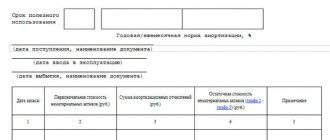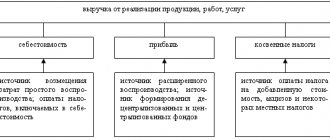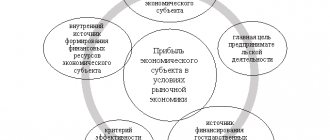There is no such right for a long time
Let’s say right away that since 2013, tax accounting for exchange rate differences under the simplified tax system has become impossible. The corresponding provisions were removed from the Tax Code of the Russian Federation long ago.
REFERENCE
Exchange rate difference is the difference that arises when converting a certain number of units in one currency into another currency using different exchange rates (clause 8 of IFRS 21 “The Impact of Changes in Exchange Rates”, put into effect in the Russian Federation by Order of the Ministry of Finance dated December 28, 2015 No. 217n) .
According to para. 4 clause 3 PBU 3/2006, exchange rate difference is the difference between the ruble valuation of an asset or liability, the value of which is expressed in foreign currency, on the date of fulfillment of payment obligations or the reporting date of a given reporting period, and the ruble valuation of the same asset or liability on the date of its acceptance for accounting in the reporting period or the reporting date of the previous reporting period.
Thus, the exchange rate difference that arises under the simplified tax system “Income” or the exchange rate difference under the simplified tax system “Income minus Expenses” does not in any way affect tax accounting and deductions under this special regime, which the simplifier must make. That is, there is no point in using the simplified tax system to track changes in the official exchange rate of foreign currency to the ruble, established by the Central Bank of Russia.
Positive exchange rate differences and negative exchange rate differences cannot be reflected in the simplified tax system when choosing any object for this special regime.
In fact, exchange rate differences between currencies affect the simplified tax system only once - at the time of receipt of revenue, when it is necessary to evaluate values and/or claims expressed in currency. After all, payers of the simplified tax system use the cash method of accounting for income.
Of course, individual entrepreneurs using the simplified tax system should not consider exchange rate differences as a basis for adjustments in tax accounting.
Let us emphasize once again that income and expenses from currency exchange revaluation do not need to be determined or taken into account. Whether it is an exchange rate difference with a simplified tax system of 6 or 15%. The same approach should be taken if the requirements (obligations) are expressed in foreign currency or monetary units, but the payment is made in rubles.
There is an opinion that an individual entrepreneur using the simplified tax system “Income” has non-operating income from a positive exchange rate difference, which must be taken into account when a payment is received in foreign currency and transferred to his personal bank account as an individual, and then the currency is exchanged for rubles at an inflated rate. The account from which the currency was sold does not matter.
How is the revaluation of foreign currency balances carried out?
Which currency items need to be revalued in 2019-2020
Revaluation of balances in foreign currency - is it necessary to recalculate at the end of the month?
What is the average rate and when can it be used?
How to revalue liabilities denominated in foreign currencies
How to correctly convert advances and deposits into rubles
Is it necessary to recalculate the value of assets abroad?
How is revaluation carried out for tax purposes?
Results
Accounting for income and expenses in foreign currency, for payers of the simplified tax system
When concluding contracts in foreign currency, an additional burden falls on the taxpayer’s accounting department.
After all, accounting and tax records can only be carried out in Russian rubles. Accordingly, all receipts in foreign currency must be recalculated.
The latest clarification on this issue was given by the Ministry of Finance of the Russian Federation in letter dated January 22, 2015 No. 03-11-06/2/1645. Let us consider in more detail the features of taxation of income and expenses expressed in foreign currency by organizations and individual entrepreneurs (hereinafter referred to as individual entrepreneurs) using the simplified taxation system (hereinafter referred to as the simplified taxation system). According to paragraph 3 of Art. 346.18 of the Tax Code of the Russian Federation, income and expenses expressed in foreign currency are taken into account in conjunction with income and expenses expressed in rubles.
In this case, income and expenses expressed in foreign currency are recalculated into rubles at the official exchange rate of the Central Bank of the Russian Federation, established respectively on the date of receipt of income and (or) the date of expenditure. In accordance with Art. 346.15 of the Tax Code of the Russian Federation, taxpayers using the simplified tax system, when determining the object of taxation, take into account income from sales determined on the basis of Art. 249 of the Tax Code of the Russian Federation, and non-operating income determined on the basis of Art.
250 Tax Code of the Russian Federation. When determining the object of taxation, income provided for in Art.
251 Tax Code of the Russian Federation; income received in the form of dividends and income from transactions with certain types of debt obligations; as well as income of individual entrepreneurs, subject to personal income tax at tax rates of 35% and 9%.
According to paragraphs 1 and 2 of Art. 249 of the Tax Code of the Russian Federation, income from sales is recognized as proceeds from the sale of goods (works, services) both of one’s own production and those previously acquired, and proceeds from the sale of property rights. Sales proceeds are determined based on all receipts associated with payments for goods (work, services) sold or property rights expressed in cash and (or) in kind.
In accordance with paragraph 1 of Art. 346.17 of the Tax Code of the Russian Federation, the date of receipt of income is recognized as the day of receipt of funds to bank accounts and (or) to the cash desk, receipt of other property (work, services) and (or) property rights, as well as repayment of debt (payment) to the taxpayer in another way (cash method ). Thus, income in the form of foreign currency, including revenue from the sale of goods, is taken into account for tax purposes by the tax paid in connection with the application of the simplified tax system when the specified funds are received into the taxpayer’s transit currency account. It is on this date that the income received must be reflected in UAH.
Section 4 I
“Books of accounting of income and expenses of organizations and individual entrepreneurs using a simplified taxation system”
, approved by order of the Ministry of Finance of the Russian Federation dated October 22, 2012 N 135n. In accordance with paragraph 3 of Art.
Exchange rate differences for income in 2021
Code, are not taken into account when determining the tax base. According to paragraphs 1 and 2 of Article 249 of the Code, income from sales is recognized as proceeds from the sale of goods (works, services) both of one’s own production and those previously acquired, and proceeds from the sale of property rights.
Sales proceeds are determined based on all receipts associated with payments for goods (work, services) sold or property rights expressed in cash and (or) in kind. In accordance with paragraph 1 of Article 346.17 of the Code, for the purposes of Chapter 26.2 of the Code, the date of receipt of income is the day of receipt of funds into bank accounts and (or) cash, receipt of other property (work, services) and (or) property rights, as well as repayment debt (payment) to the taxpayer in another way (cash method).
Thus, income received in foreign currency from operations for the sale of goods (work, services) for export is taken into account when determining the tax base for the tax paid in connection with the application of the simplified taxation system on the date of receipt of funds into the taxpayer’s foreign currency account.
According to paragraph 3 of Article 38 of the Code, a commodity is any property that is sold or intended for sale. In accordance with paragraph 2 of Article 130 of the Civil Code of the Russian Federation (hereinafter referred to as the Civil Code of the Russian Federation), things not related to real estate, including money and securities, are recognized as movable property.
Attention to the Tax Code of the Russian Federation). The company sold the currency on July 1 at a reduced rate, which again resulted in a negative exchange rate difference.
However, it will be reflected only in accounting - in paragraph 1 of Article 346.16 of the Tax Code of the Russian Federation there is no such type of expense. But the commission paid to the bank can be taken into account both in accounting and for tax purposes. In addition, we will re-evaluate and calculate the exchange rate difference from the sale of currency.
By July 1, the euro exchange rate of the Central Bank of the Russian Federation increased, and the revaluation will give a positive exchange rate difference of 2146.5 rubles.
[15,000 euros#(37.0123 rubles – 36.8692 rubles)].
It must be included in tax accounting as non-operating income, and in accounting as other income. Accounting entries are presented in table. 5, Book of expenses and income - in table.
LETTER OF THE MINISTRY OF FINANCE OF THE RUSSIAN DATED 11.12.2015 No. 03-11-06/2/72886 [STS: purchase and sale of currency] Question: Please clarify the procedure for determining income in 2015 for transactions of purchase and sale of currency for organizations that are on a simplified taxation system with the object of taxation “Income minus expenses”, as well as with the object of taxation “Income”: 1) Will the positive difference between the exchange rate on the date of sale of the currency and the purchase rate on the date of acquisition of the currency be considered taxable income? (Example: currency was purchased at the bank’s commercial rate for 30 rubles.
in 2013, and conversion into rubles took place at the commercial rate of 35 rubles. We revalue currency Taxpayers who have property or liabilities in foreign currency must regularly revalue them in rubles. Since the exchange rate is constantly changing, the ruble equivalent of the revalued object also “jumps”.
Exchange differences and simplified system
All businesses face foreign exchange transactions in one way or another.
38 of the Tax Code of the Russian Federation, a commodity for tax purposes is any property that is sold or intended for sale. According to paragraph 2 of Art. 130 of the Civil Code of the Russian Federation, things not related to real estate, including money and securities, are recognized as movable property.
Someone buys foreign currency to pay a foreign partner, someone receives it by exporting goods, someone opens a foreign currency bank account. And since income and expenses are accounted for in rubles at the rate of the Central Bank of the Russian Federation, which is constantly changing, differences arise. Now we’ll find out what to do with them. We have already repeatedly discussed in the magazine the accounting of exchange rate differences.
The topic is complex and always raises questions.
We will try to help readers again. What differences are reflected by “simplified” Let us highlight the main thing: exchange rate differences relate only to currency payments. If the contract includes a currency, and payment is made in rubles, not exchange rate differences, but amount differences are formed.
According to paragraph 3 of Article 346.17 of the Tax Code of the Russian Federation, they are not taken into account when “simplified”. What is taken into account?
Income. In accordance with Article 346.15 of the Tax Code of the Russian Federation, the tax base includes income from sales and non-operating income, which are named in Articles 249 and 250 of the Tax Code of the Russian Federation. Not reflected - those specified in Article 251 of the Tax Code of the Russian Federation. In paragraph 2 of Article 250 of the Tax Code of the Russian Federation, non-operating income is classified as non-operating income in the form of positive or negative exchange rate differences arising due to deviation of the rate of sale or purchase of currency from that established by the Central Bank of the Russian Federation, and in its paragraph 11 it is added that non-operating income is positive exchange rate differences received when revaluing property (except for securities) and claims denominated in foreign currency.
We are talking about a procedure carried out due to a change in the official exchange rate established by the Central Bank of the Russian Federation. Thus, there are two cases when exchange rate differences are included in income under the simplified system. Expenses.
Let's look at the list of paragraph 1 of Article 346.16 of the Tax Code of the Russian Federation. Subclause 34 identifies expenses caused by negative exchange rate differences. Here, too, we mean the exchange rate difference that arises when revaluing property and claims, the value of which is expressed in foreign currency, if the revaluation is due to a change in the exchange rate of the Central Bank of the Russian Federation.
Please note that exchange rate differences associated with the sale or purchase of currency at a rate higher or lower than the Central Bank of the Russian Federation are not taken into account in expenses under the simplified system. So, income is included in the tax base when exchange rate differences are formed of two types, expenses - one. Well, this once again shows how unfair the legislation is to “simplified people.” Readers are probably interested in knowing what will happen if exchange rate differences are not included in income.
We recommend reading: Are state universities different from non-state universities?
It seemed, as in any case of identifying unaccounted income, tax authorities have the right to resort to sanctions under Article 122 of the Tax Code of the Russian Federation, provided for incomplete payment of tax.
Nevertheless, let's think about it. How can “simplified people” determine income in the form of exchange rate differences?
After all, they are not required to keep accounting records in full (clause 3 of article 4 of the Federal Law of November 21, 1996 No. 129-FZ). It is enough to take into account fixed assets and intangible assets.
But this does not require any revaluation of currency values and liabilities. There are also no regulations in this regard in Chapter 26.2 of the Tax Code of the Russian Federation.









